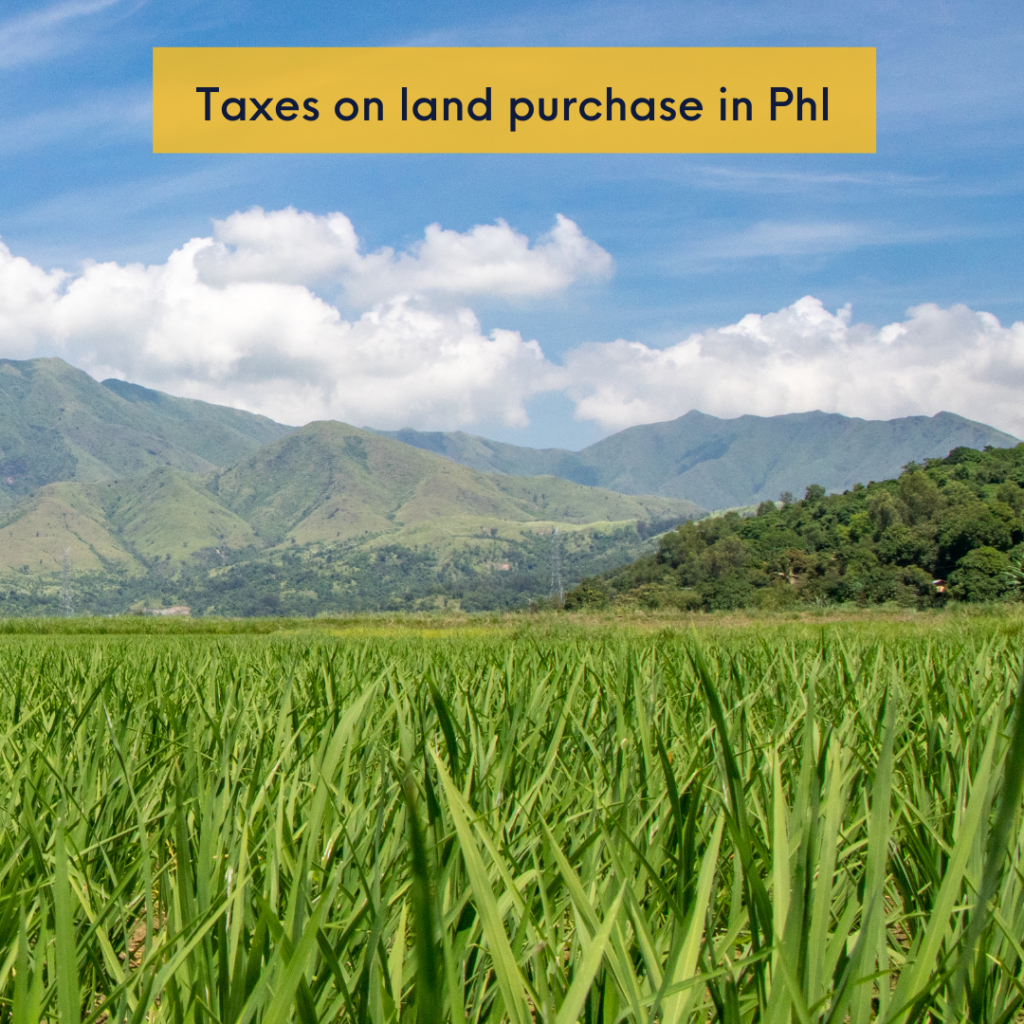
Published 26 October 2020, The Daily Tribune
In his book Principles of Political Economy (1848), John Stuart Mill said, “Landlords grow rich in their sleep without working, risking or economizing.” Even without introducing improvements on land, its value is not likely to diminish over time; but may, in fact, increase especially if it is located in a progressive area. This is true now as it is in 1848. It is no surprise, then, that real estate investment is a preferred mode of increasing and preserving wealth.
However, like any commercial transaction, purchasing land is not without taxes. In the Philippines, the government imposes stricter procedures to ensure tax collection on real estate transfers. As a prerequisite to the registration of the transfer and issuance of title to the buyer, the Philippines requires the certification from the Bureau of Internal Revenue (BIR), its taxing authority, that all proper taxes have been paid and settled on the purchase.
So, what are these taxes that should be paid before the BIR authorizes the transfer of the land title?
For one, income tax should be paid by the seller. Income tax may either be capital gains tax (CGT) if the land was held as an investment, or creditable withholding tax (CWT) if the land was used by the seller in his trade or business. In any case, the rate for both CGT and CWT is six percent on the gross selling price of the land. The key difference between the two is that the CGT is a final withholding tax on the transaction. Thus, regardless of the amount of profit actually gained by the seller for the sale of his land, his income tax thereon is fixed at six percent of the gross selling price. This may be a double-edged sword as the seller may or may not find this fixed tax lower than the amount of normal income tax computed on his profit for the sale of land. Normal income tax in the Philippines is currently 30 percent for corporate entities and at the graduated tax rates of zero percent to 35 percent (depending on the annual taxable income) for individual taxpayers. On the other hand, as its name suggests, CWT is merely creditable on the normal income tax of the seller. Consequently, if the seller used the land for his trade or business, income tax will be based on the seller’s actual profit from the sale at the income tax rate applicable to the seller.
Additionally, if the seller used the land for his trade or business, the seller will have to pay value added tax (VAT) at the rate of 12 percent on the gross selling price of the land. Note that the seller may pass on VAT to be shouldered by the buyer.
Finally, documentary stamp tax (DST) at the rate of P15 for every P1,000, or fractional part thereof, of the gross selling price should be paid on the sale of land. DST is generally assumed by the buyer, although the parties may agree that the seller shall shoulder this tax.
Proper payment of income tax, VAT and DST are considered by the BIR before it authorizes the transfer of the land title. In addition to these taxes, the Registry of Deeds will require proof of payment of transfer tax and real property tax to the local government unit concerned, as well as registration fees, before it registers the buyer as new owner of the land. Rate of transfer tax, real property tax and registration fees vary depending on the location of the property.
It is also not uncommon to purchase land by acquiring the shares of the company holding it. A more exhaustive due diligence is crucial for this acquisition structure. The company may carry liabilities unrelated to the land. The buyer’s risk is not limited solely on the land, but he is also exposed to more regulatory and contractual risk. The buyer will have to consider and identify potential penalties for any failure of the company to meet regulatory requirements, such as filing of annual reports to the Securities and Exchange Commission and timely remittance of taxes to the BIR, as well as breach or violation of existing contracts.
Although the share acquisition route carries more risk, this structure may be utilized as a tax mitigation mechanism. Sale of unlisted shares is subject to higher tax rate of 15 percent for individual taxpayers and resident corporations and 10 percent for foreign corporate taxpayers. But this is a final tax imposed on the net gain actually realized by the seller, and not on its gross selling price.
Note also that the BIR recently issued Revenue Regulations 20-2020, which sets book value as the fair market value of unlisted shares. This overturned Revenue Regulations 6-2013, which requires that the value of shares be adjusted to include any increase in the value of real estate owned by a company. This allows parties to agree on a lower share price by valuing the company using the acquisition cost of the real property held. This lower share price may translate to a lower tax incident for the seller.
In addition to capital gains tax, the sale is subject to DST of P1.50 on each P200, or fractional part thereof, of the par value of the shares.
Finally, the determination of the BIR that the proper payment of taxes for the sale of shares is also necessary before the transfer is registered in the books of the corporation. However, unlike in transfers of land, share transfers are not subject to local taxes and registration fees.
While the foregoing lays down the general rules on taxes that will have to be settled in acquiring land and shares in the Philippines, it is advisable to seek the advice of a tax consultant and/or lawyer to ensure tax efficiency and legal compliance of the acquisition structure.
For comments and questions, please send an email to cabdo@divinalaw.com.

